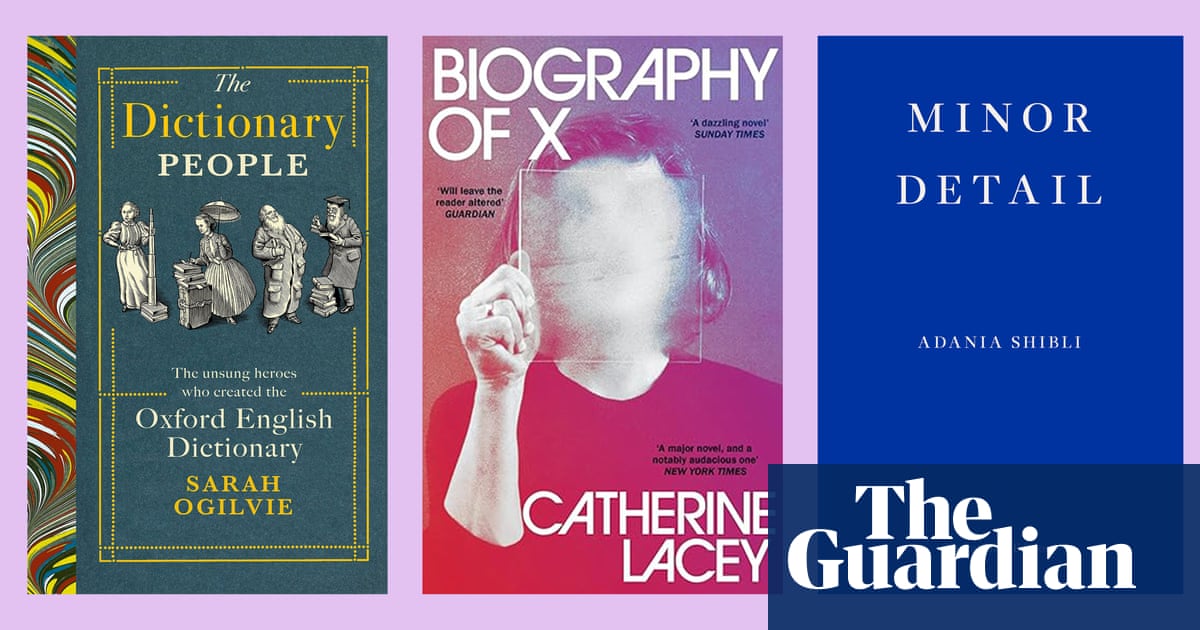I’ve been traveling a lot this month, back and forth between London and Devon and my mum’s house in Scotland. Train journeys feel like permission to read. The quick and the dead by Joy Williams has been sitting on my shelf for years, but I finally finished it while on the tube two weeks ago. What a writer! Her mind is like cold, alien moonlight. She gets to the heart of things we don’t talk about.
My recent reading has been directed by the violence in Gaza. A small detail from the Palestinian author Adania Shibli is as good as everyone says. I read it in one train ride: just over 100 pages and not a word wasted. Shibley asks us: what is considered a minor detail? Which events matter and which don’t? Whose Lives Matter, in short. I’m halfway there now Title: Reflections on a Warrior Woman by N.S. Nuseibe. I was worried this would be cute and predictable – I was so, so wrong. Writing about Muslim history and life in and outside of Jerusalem, British-Palestinian author Nusseibeh consistently and courageously refuses to take the easy way out in order to settle for direct narrative. I recognize a lot in this book and also learned so much from it.
I also read the books that were chosen along with mine for the inaugural Women’s Non-Fiction Award. I’ve read this far We depend on code by Madhumita Murgia and How to Say Babylon by Safia Sinclair, both of which are simply breathtaking – I would be so excited to see either of them win. It’s next All That She Carried by Tia Miles!
A Flat Place by Noreen Masood is published by Penguin (£10.99). To support the Guardian and Observer, order your copy at guardianbookshop.com. There may be a delivery charge
Laura Wilson, author and critic
I just finished reading the books I got as Christmas presents, the last of which was Dictionary People by Sarah Ogilvie. This is the story of the first complete Oxford English Dictionary, published in 1928 after more than 70 years of work, and the hundreds of men and women who contributed to its creation. The motley group included not only scholars and well-educated, intellectual women who in more enlightened times would have been allowed academic careers, but also three murderers, a man-eater, a prodigious collector of pornography, the inventor of the tennis net regulator, Eleanor Marks , Carl’s daughter, and several inmates of what were then called “lunatic asylums.” The Ogilvy lexicographer does a great job of bringing them to life using a proper alphabetical format. It’s surprisingly moving: I ended up in tears. I think any word lover will enjoy this as much as I do.
I’m trying to reread my way through the work of the two Celias, Fremlin and Dale, who are the grandmothers of British domestic noir. Mystery writer Dale deserves to be much better known than she is, and A Helping Hand, first published in 1966, is one of her best. It has shades of both Patricia Highsmith and Muriel Spark in this subtle, scalpel-sharp and extremely chilling study of codependency. Helping Hands belongs to Josh and Maisie Evans, who take vulnerable elderly ladies into their home, offering both practical and emotional care – but looking kind isn’t always…. The horrors that lurk behind Dale’s sophisticated facades are a thousand times more unnerving than any serial killer, precisely because they hit so very, very close to home.
after the promotion of the newsletter
Guardian reader Andrew
I read recently Biography of X by Catherine Lacey, which is a novel about a woman known as X, told from the point of view of her widow. The action takes place in an alternate USA in which the southern, northern and western states are separated after World War II. X, we learn, migrated to the northern states in the late 1960s after becoming involved with a terrorist group. She then adopted a new identity and became a songwriter, author and entertainer in the 1970s and 1980s, working with David Bowie at one point. Lacy infuses the text with photographs and artwork specially made for the book. It was a pleasure to read and definitely one of the best books – along with Tomorrow, and tomorrow, and tomorrow by Gabriel Zevin – that I have read over the past few years. I liked the way he interweaved US history and contemporary issues.
Peter Hain, author and Labor peer
I recently enjoyed In at the Kill by master thriller writer Gerald Seymour, starring the sleazy MI5 anti-hero Jonas Merrick. Seymour has a knack for getting right into her characters in plots that are utterly compelling.
A very different novel is Andre Rushton’s Nicole’s War, a fascinating undercover insight into life in Nazi-occupied Paris, drawn intriguingly from the experiences of the author’s late mother.
The brilliant Nelson & Winnie by Johnny Steinberg swept me away – perceptive rather than prejudiced, intriguing and insightful about Nelson Mandela and his indomitably defiant wife.
James O’Brien made my blood boil with his meticulously researched yet readable denunciation, How they broke Britain. He clinically dissects the culprits behind Brexit, austerity and the neoliberal curse placed upon us hapless citizens, leaving a sadly destroyed society.
